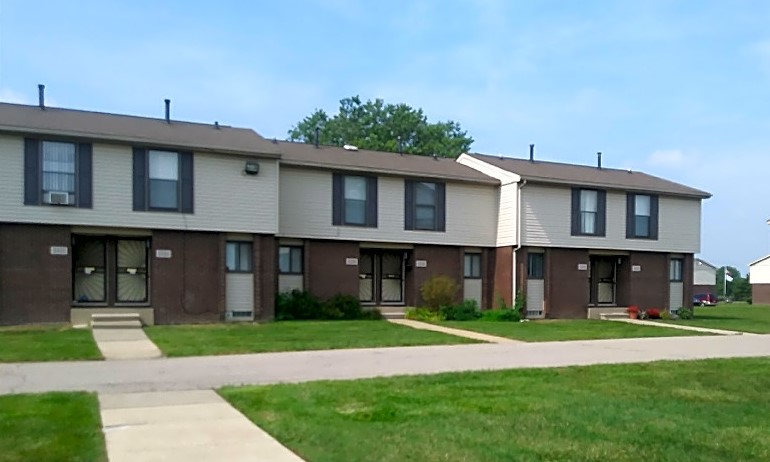Detroit’s Largest Black-Owned Housing Co-Op Isn’t Going Anywhere
Within a mile of Detroit’s Michigan Central Station sits one of the longest running majority black-owned housing co-ops in Detroit: Fountain Court.

Since 1968, generations of families seeking affordable real estate ownership in Detroit have made Fountain Court home.
Fountain Court is distinguished as being the largest majority Black-owned housing cooperative in Detroit. Constructed just after the 1967 rebellion, it welcomed its first members one year later.
A Perfect Fit
Janice Slappy has been a member of Fountain Court Co-op for 45 years.
In her search for single-family housing on the city’s eastside in the 1970s, Slappy had a hard time finding the right fit. Everything she could afford was either a duplex or sat on a high-traffic street – both undesirable options for a single woman with a child.
“I contacted Coleman Young’s office and told him that I was a single mother who was looking for housing and I had a lot of difficulty finding it,” says Slappy. “His office referred me here.”
Listen: The history and future of Detroit’s Fountain Court Co-Op
“I didn’t want to live in the projects. I didn’t come from the projects. And I had not had any idea what that kind of living would be,” says Slappy.
Passersby have sometimes assumed Fountain Court is a federal housing project, a fact that Fountain Court’s members find offensive because of the negative connotation associated with housing projects in predominantly Black neighborhoods.
Though some members do buy their share in Fountain Court with the help of subsidies, they, like all others, hold the full rights and privileges afforded with ownership and all of the positive connotations homeownership brings.
For Janice Slappy, Fountain Court was not only a safe, affordable place to live; it also gave her a chance to be part of a community. She loved it so much that she eventually became a member of the co-op’s board.
“Once I did that, there was no way I was gonna leave here,” says Slappy.
A Shared Interest
Jerome Rayford, Fountain Court’s Board President, describes a housing cooperative as a place where a group of people live together in affordable housing.
“We pool all of our resources together. All the people that live in a cooperative are called member shareholders,” says Rayford. “So, they have 1% interest, as though they were stockholders in a large company.”
Fountain Court offers residents like Janice Slappy and Jerome Rayford the ownership and community they seek at a fraction of what it would cost to maintain a single-family dwelling.
“I get calls, I get emails — from developers, investors, you name it, that think they can buy Fountain Court by contacting board members.” – Janice Slappy, Fountain Court Board Member
These days, its prime location is causing developers to eye the co-op with fresh interest.
Less than one mile away, Ford Motor Company is redeveloping the old train station on Michigan Avenue. Near there, a large swath of empty land has Ms. Slappy curious about what’s next.
“There have been all kinds of people that have called from New York and Illinois and California that want to buy here, too. I get calls, I get emails — from developers, investors, you name it, that think they can buy Fountain Court by contacting board members.”
Several members have held their shares of the co-op for the entire 52 years of Fountain Court’s existence, and younger generations of those long-time Fountain Court families are eagerly seeking shares in the co-op to raise children of their own.
With that kind of history, there’s little chance investors will be able to buy it.
Though Fountain Court member shareholders aren’t eager to sell, interest in the area has not waned. Two blocks away, owners of single-family homes have been approached to sell their houses by eager investors.
But, 52 years in, money still isn’t enough to change folks’ tune at Fountain Court.
After all, there’s no place like home.
Trusted, accurate, up-to-date
WDET is here to keep you informed on essential information, news and resources related to COVID-19.
This is a stressful, insecure time for many. So it’s more important than ever for you, our listeners and readers, who are able to donate to keep supporting WDET’s mission. Please make a gift today.
